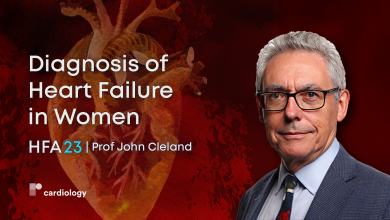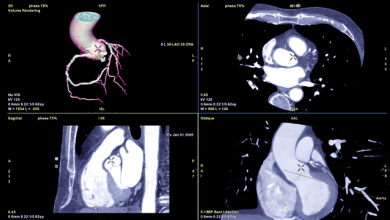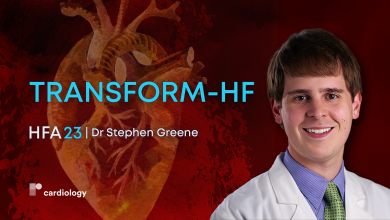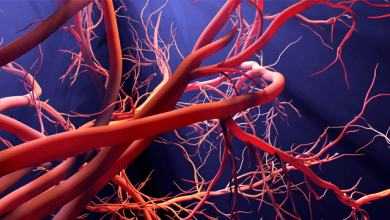Search results
Author(s):
Tiny Jaarsma
Added:
3 years ago
Heart failure (HF) has become a significant public health problem, with a rapidly rising incidence and prevalence that is predicted to continue to rise far into the 21st century.1 Overall, 1-2% of the adult population in developed countries worldwide suffers from HF but prevalence increases 10-fold in those over 75 years of age.2 Because the incidence of HF rises with age its prevalence will…
View more
Author(s):
John GF Cleland
Added:
11 months ago
ESC-HFA 2023 – Prof John Cleland (University of Glasgow, Glasgow, UK) discusses the findings from a study that looked at the diagnostic of heart failure in a cohort of 1.1 million people using the NHS EMR database.
Finding presented at Heart Failure 2023, showed that more people treated with LD than receive diagnosis of heart failure, this disparity was greater in women compared to men.
…
View more
Author(s):
Konstantinos N Aronis
,
Brittany Edgar
,
Wendy Lin
,
et al
Added:
3 years ago
Atrial fibrillation (AF) requires complex management to prevent adverse outcomes. To succeed with AF, patients need to learn specialised medical terminology and the self-care skills and activation to interpret and report symptoms. AF care involves long-term adherence to medications with deleterious side-effects, such as antiarrhythmics and anticoagulants. The patient experience of AF is further…
View more
Author(s):
Teresa Sevilla
,
Ana Revilla-Orodea
,
J Alberto San Román
Added:
2 years ago
Author(s):
Todd Rudo
Added:
3 years ago
Atrial fibrillation (AF) is the most common arrhythmia encountered in clinical practice, with a prevalence that substantially increases with age. Both the loss of atrial mechanical function and a rapid, irregular ventricular response contribute to potentially significant symptoms, including palpitations, fatigue, chest discomfort, light headedness or syncope. Additionally, AF is associated with a…
View more
Author(s):
Philipp Sommer
,
Gerhard Hindricks
Added:
3 years ago
Implantable Monitors and Atrial Fibrillation
In selected cases, implantable cardiac monitors (ICMs) can be helpful diagnostic tools for patients with unclear syncopes or undocumented arrhythmias.1 However, in the field of catheter ablation of atrial fibrillation (AF) – the fastest growing area of interventional electrophysiology in the past 10 years – there is a need for continuous rhythm…
View more
Author(s):
Patricia Fonseca
,
Raphael Rosenhek
,
Vinayak Bapat
,
et al
Added:
3 years ago
Degenerative aortic stenosis (AS) is a chronic progressive valvular disease that affects approximately 1.4 % of individuals over 65 years and 4.6 % of patients older than 75 years in the US.1 While the prognosis of asymptomatic patients with severe AS is generally good, that of symptomatic patients is very poor, with an overall mortality of approximately 80 % at three years once the disease…
View more
Author(s):
Stephen J Greene
Added:
10 months ago
ESC-HFA 23 — Dr Stephen Greene (Duke University School of Medicine, US) outlines the findings from the QoL study of the TRANSFORM-HF Trial (NCT03296813).
The TRANSFORM-HF trial is a randomized trial which compared torsemide to furosemide as a treatment for patients with heart failure. Around 2859 patients with heart failure were enrolled in the trial, whose clinical outcomes were measured across…
View more
Author(s):
Haider Aldiwani
,
Suzan Mahdai
,
Ghaith Alhatemi
,
et al
Added:
2 years ago
Author(s):
Marie Mide Michelsen
,
Naja Dam Mygind
,
Daria Frestad
,
et al
Added:
3 years ago
Women have for many years been regarded as being at relatively low risk for the development of ischaemic heart disease (IHD).1,2 Recently this pattern has changed and cardiovascular disease (CVD) is now the leading cause of death for women in Europe.3,4 Under the age of 60 years acute coronary syndrome occurs 3–4 times more often in men; however, after the age of 75 years women represent the…
View more
















 « First
« First